The Best Running Belts
Carry your phone, keys, wallet and gels without strapping on a backpack
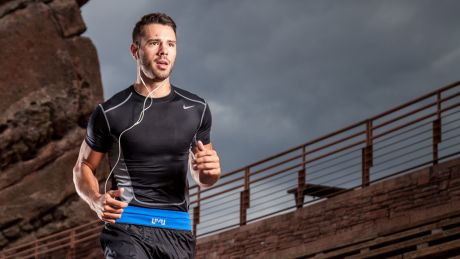
While some runners pound the pavements entirely free of their worldly possessions, there are plenty that prefer to carry stuff with them on their run, especially when heading out for long trips that require both entertainment and sustenance. For any runs that stray over the 90-minute mark you’ll need to carry some kind of energy source to get you through, be it running gels, energy bars or dried fruit, and maybe a water bottle, too.
And while smartphones are undeniably handy to have with you to use running apps to track runs and stream music or podcasts to running headphones, today’s massive models pose a problem. Once the screen size hits 5in it becomes too big for almost all running shorts pockets and too awkward to comfortably strap on in an armband.
Running backpacks are one solution, but they’re unpleasantly bulky when running races, rather than simply commuting. A good running belt, however, will be able to carry everything you need for any run up to an ultramarathon without getting in your way or on your nerves. Here are 11 great belts to consider.
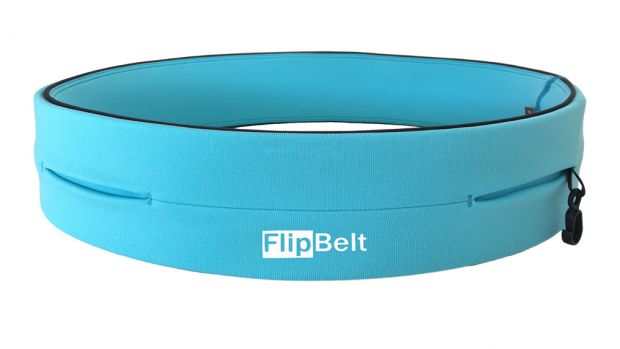
FlipBelt Classic
Our expert review:
Specifications
Reasons to buy
Reasons to avoid
This is a smart design and one of our long-time favourites – we’ve used it for several marathons. Slide the belt on (you’ll need to get the correct waist size) and slip your valuables and gels into the pockets that run the length of the belt. Then flip the belt over to secure your stuff, which is held tight against your body so there’s no bounce. The Classic FlipBelt works well with most phones, but the bigger Zipper edition is preferable if you’re a phablet fan or want to carry a lot of water with you. Flipbelt also sells water bottles designed to slip into its belts, which are gently curved to fit against your body.
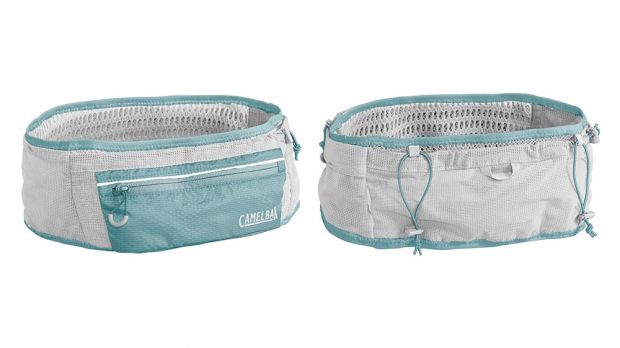
Camelbak Ultra Belt
Specifications
Reasons to buy
Reasons to avoid
The Camelbak Ultra Belt offers a huge amount of storage in a clever design that ensures you don’t get any annoying bouncing no matter what you cram into its pockets. Those include a zipped pouch on the front and a large pocket on the back that you can tighten. The rear pocket can take a 500ml soft flask and can be tightened, so that even if you carry a full flask it won’t bounce around. There are also drop-in side pockets, and another drop-in pouch behind the zipped pocket on the front. We’ve taken a 250ml flask, a 150ml flask, two gels, a phone and a Buff in the belt, and still had pockets to spare. What luxury!
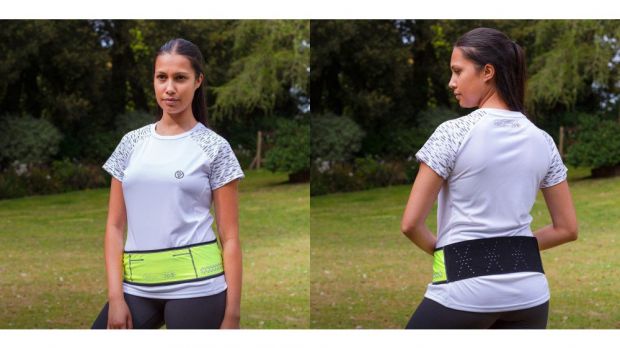
Proviz REFLECT360 Running Belt
Specifications
Reasons to buy
Reasons to avoid
Although this belt doesn’t offer as much storage as its large size might suggest, it does bring a high degree of visibility, with reflective details all the way around. The soft material can feel a little hot at times, partly because the band is so wide, but it dries quickly and is comfortable to wear next to the skin if you’re not wearing the belt on the outside of your running top to increase your visibility. There are three pockets on the inside of the belt so your gear is held tight against your body, and there’s enough room for all the essentials plus gels or energy bars.
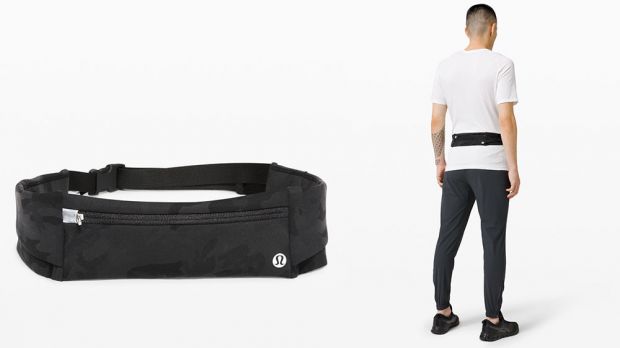
Lululemon Fast And Free Run Belt
Specifications
Reasons to buy
Reasons to avoid
This belt holds an impressive amount of stuff given its slim profile. The main zipped pocket is able to take larger phones even in a case and the smaller pouch pockets on each side stretch to accommodate gels, keys and bank cards. It can be adjusted easily to fit snugly, minimising bounce, and the soft fabric on the pocket and strap is comfortable against the skin.
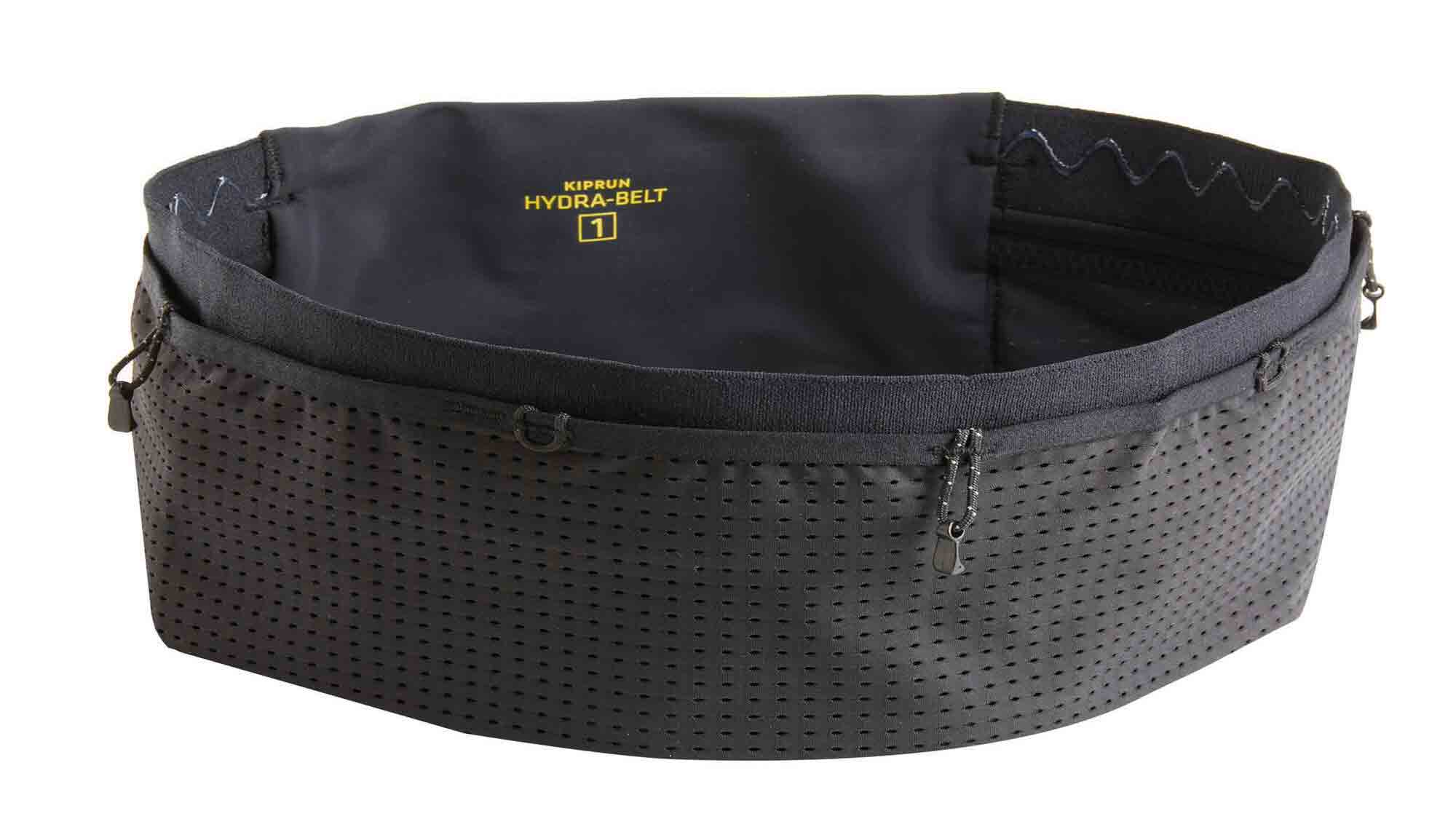
Kiprun Hydration Flask-Carrying Running Belt
Specifications
Reasons to buy
Reasons to avoid
This capacious belt has become our go-to for marathons and we place it ahead of several much pricier options. It has drop-in pockets that we’ve found can easily take two 250ml or 360ml soft flasks, plus several gels. You buy the belt corresponding to your waist size and the resulting snug fit means there’s no bouncing on the run, even when the belt is fully loaded. It has one large main pocket that runs around the front and sides, along with a smaller pouch at the back that can accommodate a large phone. The only drawback is that we’ve seen a small hole developing in the belt after a year of use. It’s not affecting its usability yet, but it’s a concern.
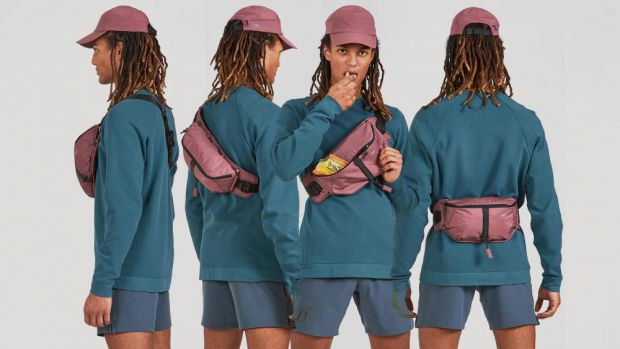
Janji Multipass Sling Bag
Specifications
Reasons to buy
Reasons to avoid
This sizeable bag can be worn around your waist or slung over a shoulder. With two litres of space in its various pockets for storing kit, it’s a great option for long outings on foot. The bag has two zip pockets and an expandable bungee compartment, plus a pocket to tuck away the extra chest strap when it’s not in use. It’s a bit bulky for everyday runs but having the extra storage space could be invaluable, and the Sling Bag also works as a hiking pack for those who don’t need a full backpack. Janji sells its gear in limited runs and the Multipass Sling Bag is currently out of stock, but you can sign up to be alerted when it is available again.
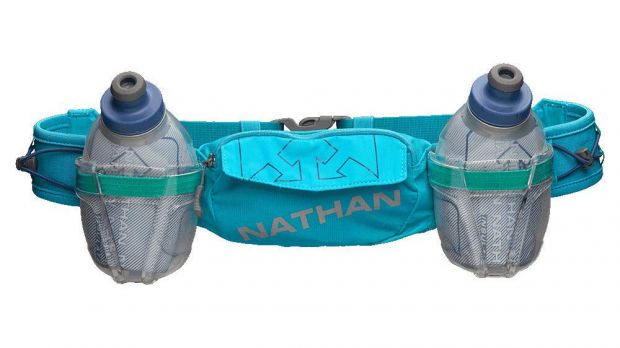
Nathan Trail Mix Plus Insulated Hydration Belt
Specifications
Reasons to buy
Reasons to avoid
For those who want to carry a lot of liquid with them without strapping on a backpack, this belt and its twin water bottle holsters is a great option. The 300ml bottles have a push/pull cap that’s set at an angle so they point away from your body and won’t stick into you on the run. The bottles are also insulated, which means you can get a refreshing, cold drink hours into the run rather than the usual tepid liquid. The central pocket is a good size too, holding a phone or a few gels comfortably.
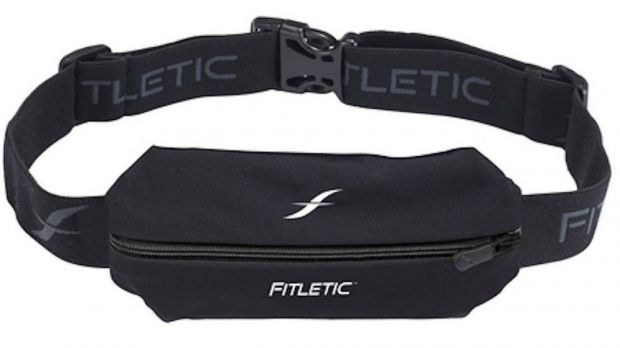
Fitletic Mini Lycra Belt
Specifications
Reasons to buy
Reasons to avoid
Don’t let the “mini” in the name fool you – this belt will expand to handle a phablet comfortably, even if it’s protected with a slim phone case. You can also tuck a card and keys inside a separate compartment behind your phone in the main pocket. That’s about it, though – there are no other pockets – so this is a belt for short races and runs when you just want your valuables, and can leave energy gels or bars behind. The small Lycra pouch dries quickly and the strap length will stick where you set it, so once it’s adjusted you won’t have to fiddle with it at the start of every run.
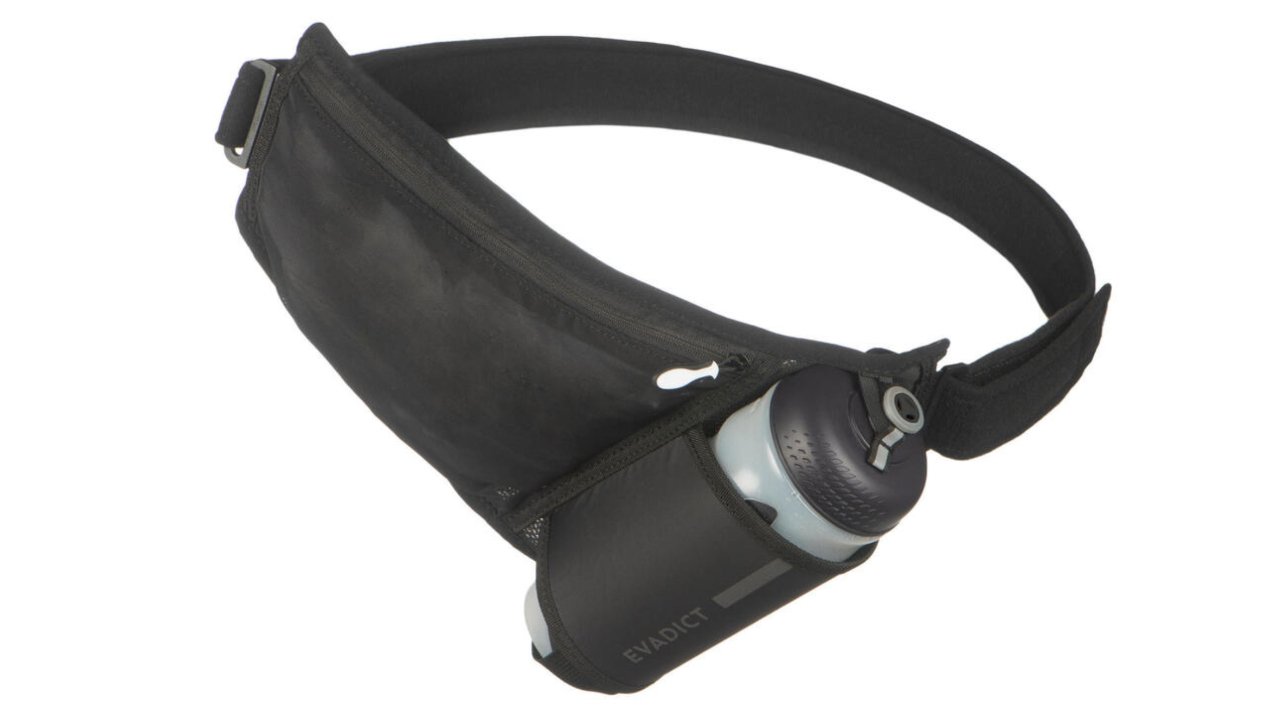
Evadict Trail Running Hydration Belt
Specifications
Reasons to buy
Reasons to avoid
This is a belt that knows what you need to carry on long trail runs, with pockets designed specifically to accommodate those things. That means a big flask at the back, plus pole holders, then smaller pockets on the sides for gels and bars, a pouch on the front for another small flask and then a waterproof pocket behind that pouch for your phone. The system works well, and because you can tighten the belt, there’s never any bouncing. The only fault we have with it is that bigger side pockets would be useful for those who want to slip in another small soft flask instead of gels. That’s proper nit-picking, though. This is an excellent belt for the road or the trail.
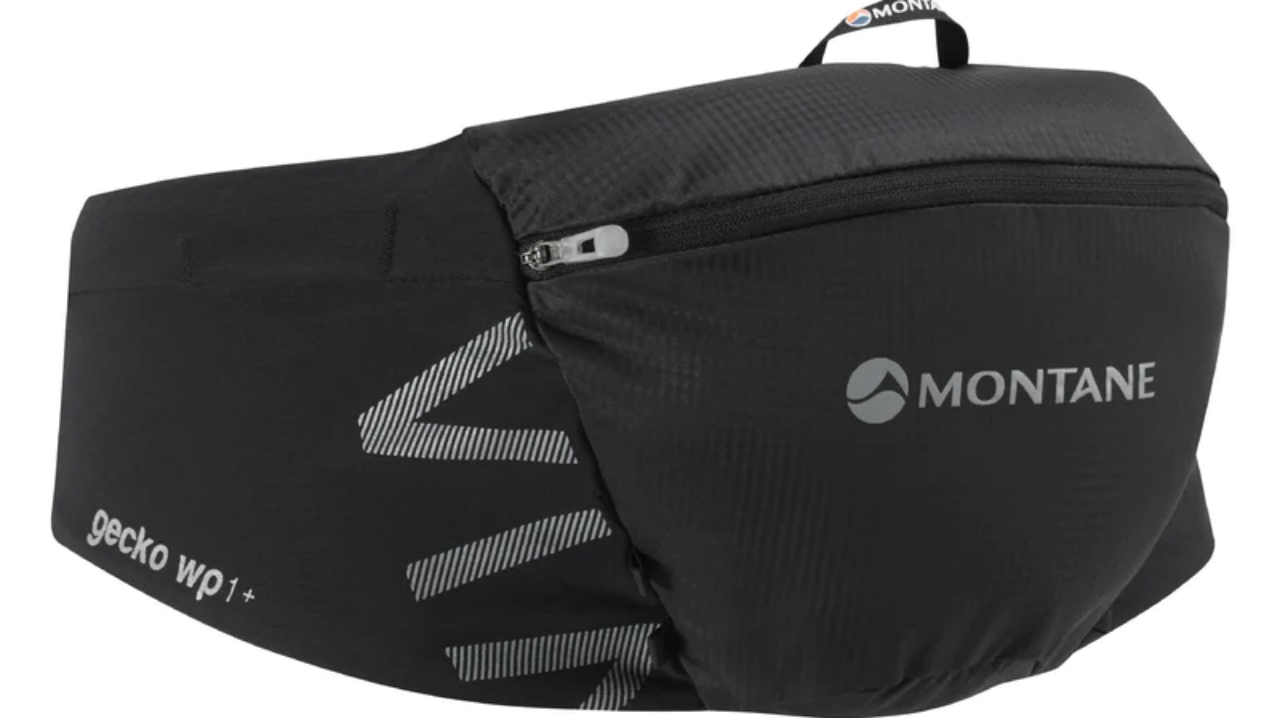
Montane Gecko WP 1+ Waist Pack
Specifications
Reasons to buy
Reasons to avoid
The Gecko waist pack sits comfortably in the small of your back and while it can bounce a little when fully loaded, we’ve never found it too annoying during our runs. The large main pocket is great for packing in nutrition and spare clothes, and there are two smaller stretch pockets on the side to keep essentials in. That can be handy because we found stuff can get jumbled up in the main pocket. The Velcro fastening is useful for adjusting the fit on the fly, so you can loosen it when walking sections of your run then tighten it when running to limit the bounce.
Get the Coach Newsletter
Sign up for workout ideas, training advice, reviews of the latest gear and more.

Nick Harris-Fry is a journalist who has been covering health and fitness since 2015. Nick is an avid runner, covering 70-110km a week, which gives him ample opportunity to test a wide range of running shoes and running gear. He is also the chief tester for fitness trackers and running watches, treadmills and exercise bikes, and workout headphones.
